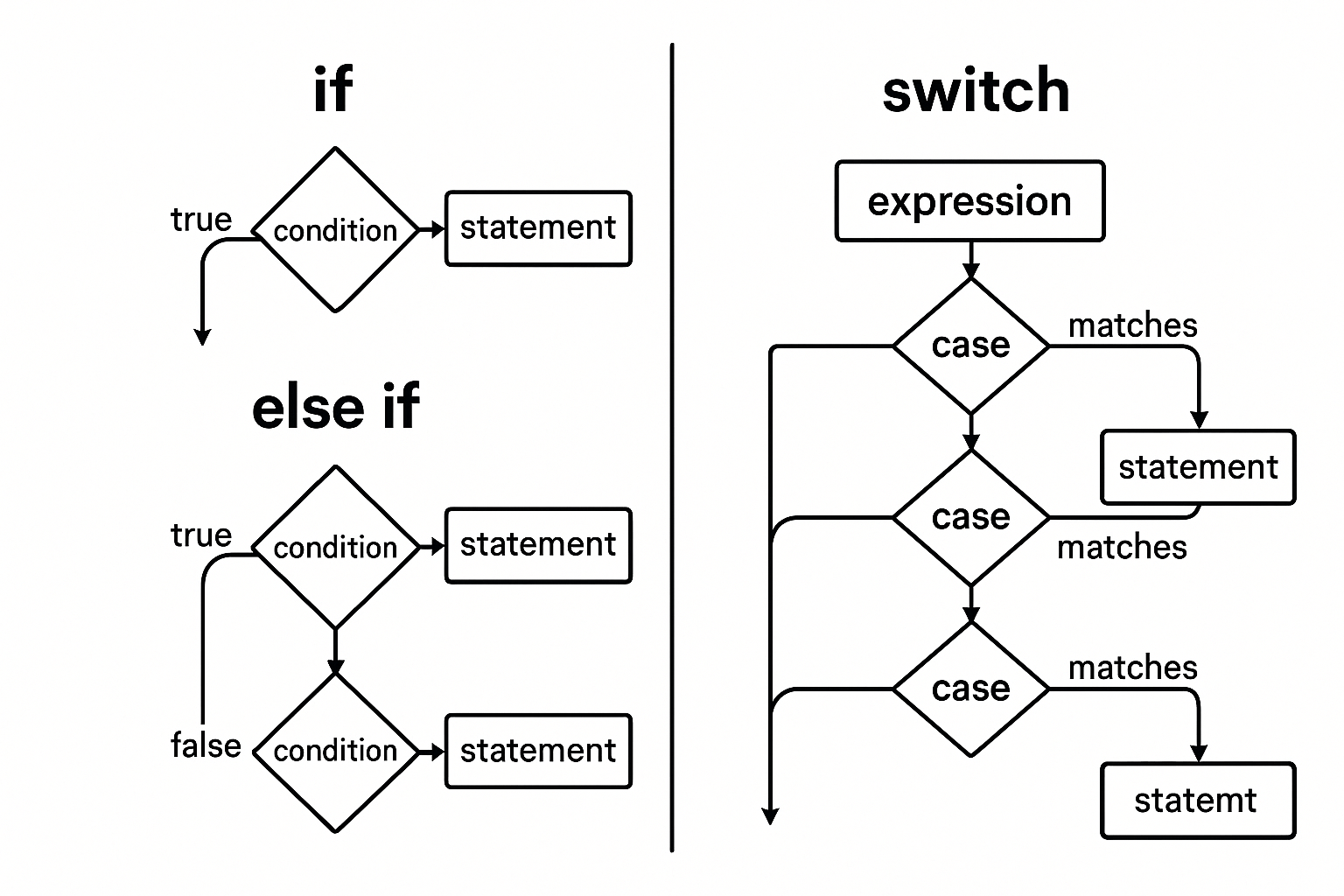Control Flow Visualization
If-Else vs Switch in Java Overview
In Java, conditional branching can be achieved using either **if-else statements** or **switch statements**. This diagram clearly distinguishes the two structures. The **if-else** chain evaluates a series of boolean conditions one by one. It executes the corresponding code block for the first true condition. This approach is ideal when dealing with complex conditions or ranges. On the other hand, the **switch statement** evaluates a single expression and matches it against multiple predefined cases. It’s best used for exact value matches like integers, characters, or enumerated types. Moreover, switch statements improve readability when many discrete values must be checked. Furthermore, both structures allow decision-making in code, but the choice between them depends on the problem’s nature. Therefore, understanding when to use if-else versus switch helps in writing cleaner, more efficient Java control logic.
Key Features of If-Else vs Switch in Java
- If-Else: Evaluates conditions in sequence and supports complex boolean logic.
- Switch: Matches a single expression against fixed values (cases).
- Code Clarity: Switch improves readability with multiple options; if-else handles dynamic logic.
What’s Included with If-Else vs Switch in Java
- Flowchart diagram comparing decision paths for if-else and switch statements.
- Visual breakdown of branching logic to illustrate conditional evaluation.
How to Use If-Else vs Switch in Java
- Use **if-else** for conditional expressions, logical operations, or dynamic comparisons.
- Use **switch** for matching fixed expression values such as menu choices or status codes.
Ideal Uses and Placement
- Use if-else when decisions involve ranges, logical operators, or complex conditions.
- Use switch when evaluating a single variable against constant values.
If-Else vs Switch in Java Specifications
- If-Else: Uses multiple conditions evaluated in order.
- Switch: Uses one expression with multiple case matches.
Java flowchart comparison of if-else vs switch statement branching logic”
Explore More Resources
- Find similar products: Products Page
- Gain further insights: Our Blog
- Enhance your understanding: AI & QA Resources
- Learn from experts: Oracle Java If and Switch Documentation
Why Choose If-Else vs Switch in Java Guide?
This guide helps you decide between flexible condition checks and value-based branching. Moreover, it simplifies control logic design. Therefore, it’s essential for efficient Java programming.
Order Your If-Else vs Switch in Java Guide Today!
Choose the right control flow—learn when to use if-else or switch statements with this practical Java guide!
$4.89
- ✅ Instant Download Available
- 🖼️ Ultra High-Resolution 4K PNG + JPG (4096×6144, 300 DPI)
- 🖨️ Prints Beautifully up to 13.6×20.5 inches
- ♾️ Unlimited Downloads
- 🔁 Commercial Use & Resale Allowed
- 💾 Digital Product – No Physical Item Shipped
- 📥 Instant Access via Download Link Post-Purchase
- 🛒 Want a Physical Print?
You can upload your downloaded artwork to services like Printful, Zazzle, or your local print shop to create stunning physical prints.
All 4K images include the label "4K" in their title.
If your selected image does not include "4K", please contact us for your complimentary upgrade.









